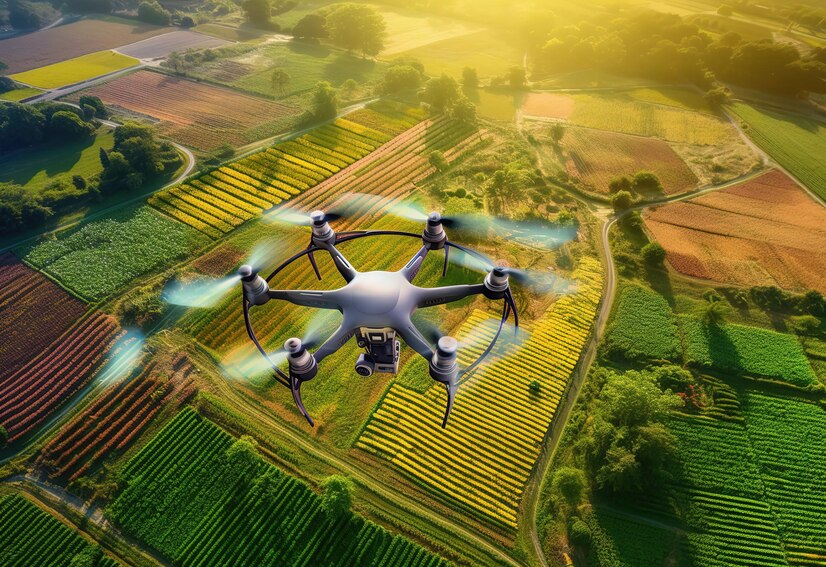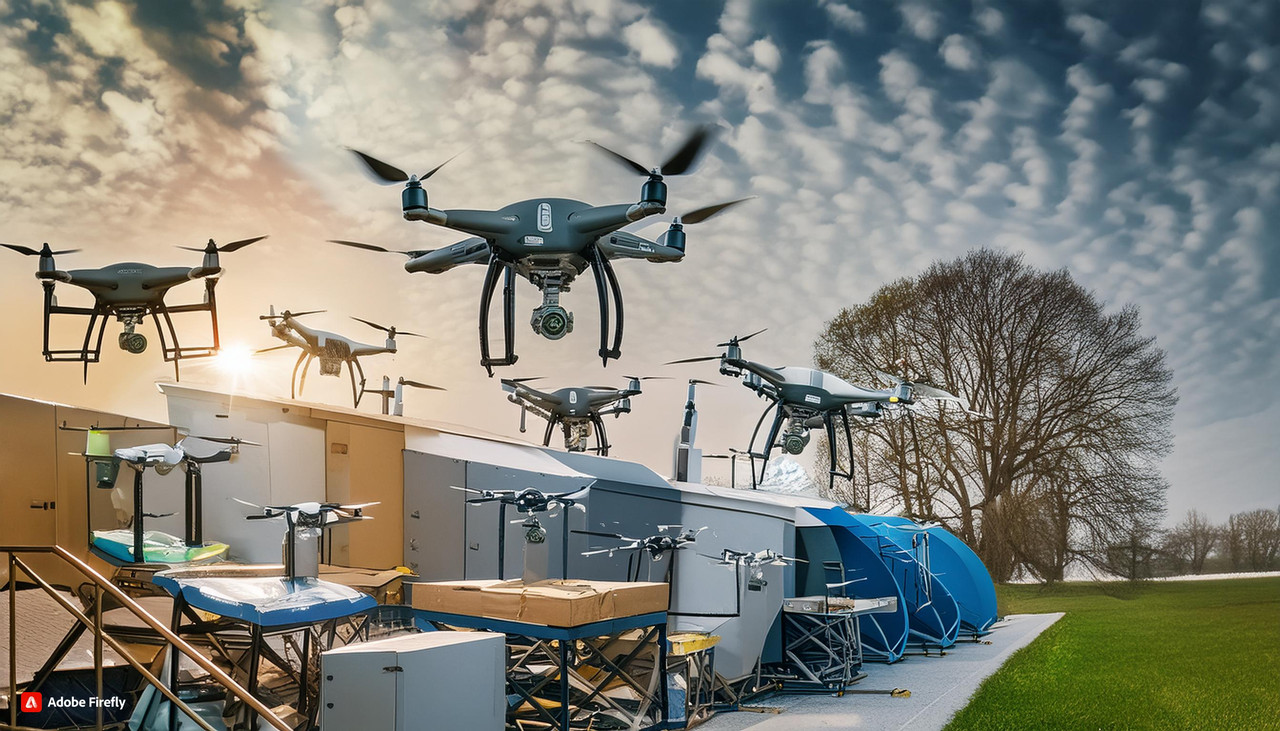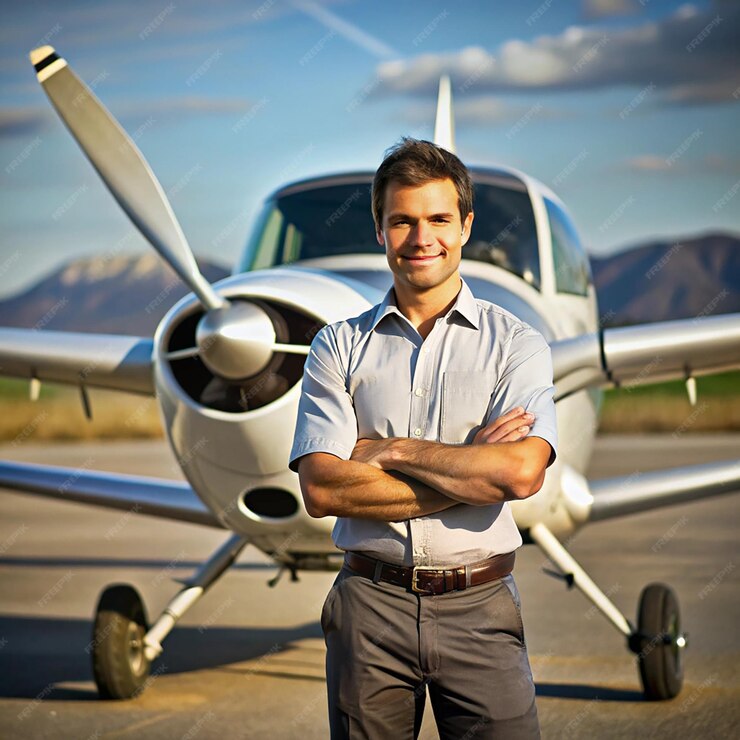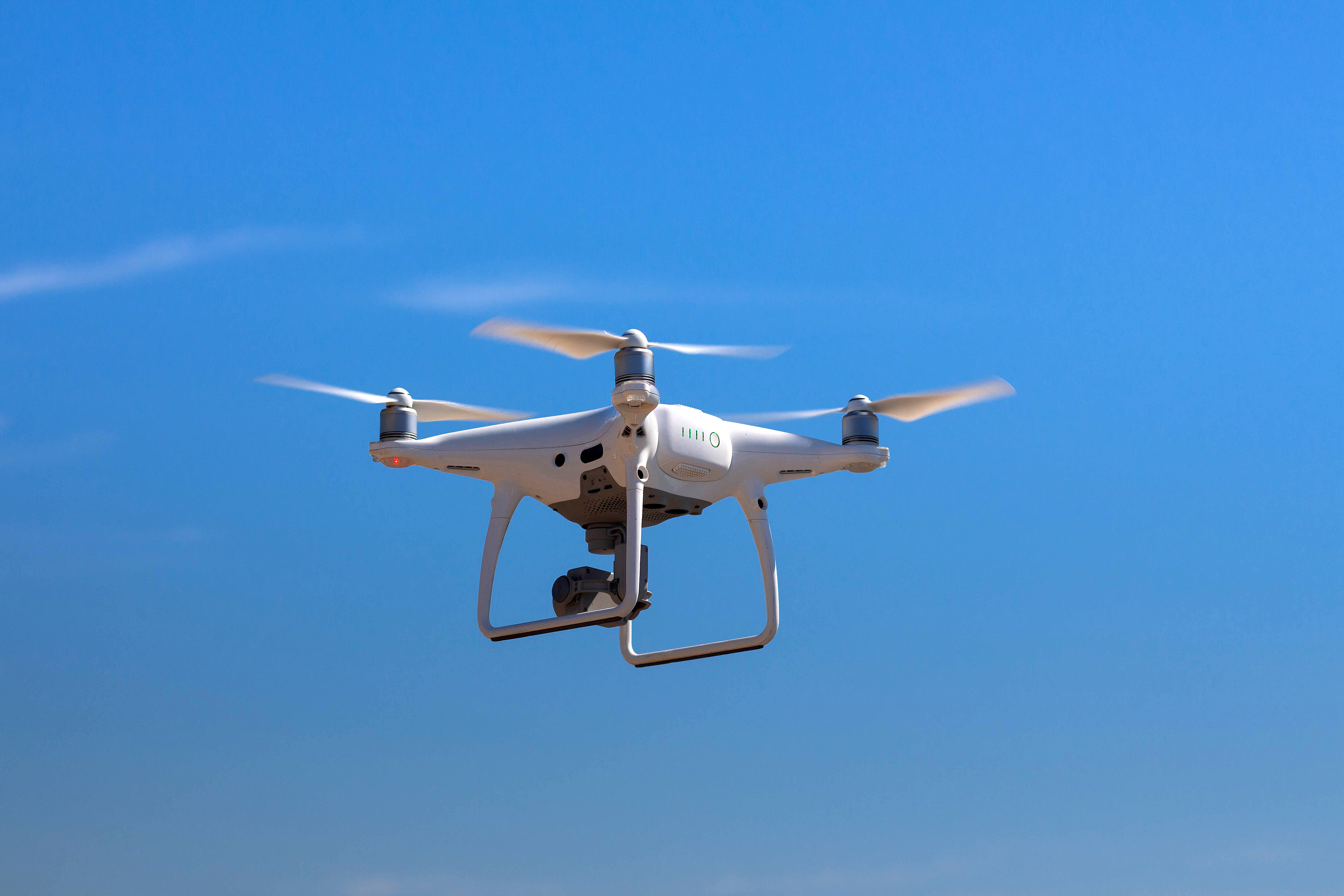
Importance of Training for the Operation of Agricultural Drones

Drones have come a long way in this contemporary world and are now being used in a lot of industries. Agriculture industries have come up with open arms to embrace drones.
Agricultural drones prove their worth in redefining agricultural applications. The combination of sensors, cameras, and GPS systems enables them to collect data, monitor, and perform all precision agriculture applications. With images and data, farmers can make the right decisions, and the output will take care of itself with the right decisions.
Drones can transform precision farming, decreasing the burden on human workers and achieving better results. As the ICAR report states, the agriculture drone market in India will reach USD 1 billion by 2025.

Role of Drones in Precision Farming
- Assessment of the Soil: Drones collect data for soil analysis, which helps in crop planning and management decisions.
- Seed Sowing and Planting: Drones simplify the entire process of sowing the seeds and decrease the cost of crop planting.
- Precision Crop Spraying: Drones are useful for ensuring the precise application of pesticides and nutrients, saving money and the environment.
- Crop Monitoring: Drones offer effective, significant crop surveillance, revealing inefficiencies left during production and need to be treated.
- Irrigation Management: Drones equipped with thermal cameras and sensors help apply specific water based on soil moisture status.
- Assessment of Crop Health: Drones detect crop diseases early using green and near-infrared light.
- Monitoring Livestock: Drones track livestock movements and health using sensors and RFID tags.

Benefits of Agricultural Drone Use
Increased Crop Productivity
The most prominent benefit of using agricultural drones is their capability to cope with the growing population requirements. Some agricultural tasks that require a lot of manpower can be done by a single drone in minutes. Because drones have software intended to ensure consistency in operation, the quality of crop output is guaranteed in every section of the agricultural land. This means the lowest resources with maximum yield.
Adaptation to Climate
Change Climate change significantly affects farming operations. The changing conditions affect crop productivity and strain the human workforce. This has led farmers to look for new ways to upsurge production and advance competence that is not there in traditional farming. True sustainability can be attained with the use of agricultural drones.
Environmental Pollution is Greatly Reduced
Agricultural excess from fertilizers and pesticides is largely caused by farmers' inability to calculate chemical absorption. This leads to overcompensation and the usage of more than the suggested amount for good measure. Drones will reduce this with the use of data-processing drones. Drones process data that lets them administer chemicals exactly. This will ultimately decrease the amount used and disregard the chances of overspraying.

Drone Regulations in India
- Regulations have been laid down by the Ministry of Civil Aviation and the DGCA with regard to preventing illegal drone operations and ensuring public safety.
- The Digital Sky Platform is a national UTM platform executing a no authorization, no take-off policy.
- Regulations classify drones based on weight and specify no-fly zones and operational guidelines.

Need for Apt Training for Agricultural Drone Operation
Drones are useful in the contemporary world, but their application in agriculture rests mainly on the skill of drone operators. Unsuitable drone usage can lead to inadequacies, wrong data, and even safety hazards.
Concerns Regarding Safety
In the absence of proper drone training with regard to flying an agricultural drone, many issues can arise regarding drone control, resulting in accidents or damage to crops. This can be a precarious situation for the farmers, as they have to bear the costs of both the drone and the crop damage. Otherwise, trained operators know the safety protocols and procedures for guaranteeing smooth agricultural drone operations.
Best Use of Drone Technology
Agricultural drones have cameras, GPS mapping, and AI algorithms. The workers should be trained to use agriculture drones laden with all these features. Without the right knowledge, drones might not be used to their full potential, declining the influence on farming practices.
Regulatory Compliance
DGCA controls all aviation and drone use in India. One should always have a medium, remote pilot certificate for commercial operations of an agricultural drone. Training programs enable operators to comply with all the regulations and avoid all the legal consequences.

What are the Rewards of Proper Drone Training?
Drone Flying Skills
The training makes a person adept at all the basics of flying a drone in diverse environments. Operators gain all the knowledge and skills required to control drones in different conditions, which helps them operate drones with a mix of caution and precision.
Interpretation and Analysis of Data
Agricultural drones are good for collecting quality images, temperature readings, and soil health. Training gives drone operators all the skills and knowledge regarding the interpretation and analysis of data collected for different practices of precision agriculture. Drone pilot training helps the pilots understand the use of drones for agriculture.
Maintenance and Fixing of Issues
Drones should always be maintained properly to keep them used long. Drone training also enables people to check for glitches, swap parts, and even fix some issues, ensuring the drone lasts long.
Crop-Specific Applications
After undergoing drone training, farmers get trained to use it for precise crops. Training programs can provide precise solutions for precise crop types to advance the competence of drones.

Economic and Environmental Benefits of Trained Drone Pilots
With drone operations' safety and effectiveness being affected, the right training can help monetary benefits.
Cost Efficiency
Trained drone pilots provide accurate data about farming practices. If farmers know how to propel drones, they can use them to their full potential, reducing the cost of labour and increasing productivity. The Indian government discovered in a survey that drones can reduce pesticide use by around 30%, helping farmers save money.
Environmental Impact of Drones
Using agricultural drones with the right drone training helps farmers decrease environmental damage. Fertilizers can be sprayed more exactly with drones, abating chemical runoff. This enables more sustainable farming practices, benefitting the farmers and the environment.

Demand for Agricultural Drones Growing Rapidly
Demand for drones in India is on the rise due to the increase in the use of agricultural drones, and the demand for drone pilots is also not stopping. Proper training aids in the safe use of drones. Drone training will have permanent benefits for the agriculture industry. With consistent government support and snowballing awareness, drones are an important factor in defining the future of agriculture.
With drone technology becoming stronger daily, farmers should not hold themselves back from using drones to achieve better results in precision agriculture. India can secure a sustainable agricultural future with all the required knowledge in agriculture drone pilots.

What Does the Future Hold for Agricultural Drones?
Drones are evolving daily to meet agricultural needs. Some UAVs can offer real-time data to operators, making drones' financial advantages more achievable. From lowering the cost of production to maximizing farming coverage, there is no reason not to adopt drones in agriculture.
Drones have the potential to help people overcome obstacles in farming, making them essential to human thriving through sustainable food production. The future is here, in the form of agricultural drones. Success is within reach for farmers willing to adapt to it.
Summing Up the Scene
If you are a farmer and want to learn to propel drones, come to Flapone Aviation. We are the pioneers of drone training due to our quality, excellence, and students' trust. By learning how to propel agricultural drones properly, you can also get a medium drone pilot license. This certification will enable you to fly agricultural drones for commercial purposes, but be mindful that you have to fly them as per the rules and regulations laid down by the DGCA. So, what are you waiting for? Explore the fascinating world of agricultural drones.
Related Blog
Latest updates and insights from Flapone Aviation.

What Types of Drones Are Present in the Market?
October 8, 2024

How to Become a Pilot After 12th in India?
February 7, 2025

What are the Basics of Drone Piloting?
February 7, 2025




Author Bio
A dynamic and seasoned content writer with 6 years of experience curating content for different platforms. With the knowledge of all the cogs of content writing and SEO, he has served in various industries. He believes that content is the kingpin, and if penned well, it has a lasting impact on the minds of the readers. Apart from content creation, he is also an ardent poetry lover and performer. He has two publications of his poetry collection, namely Alfaaz and Chestha